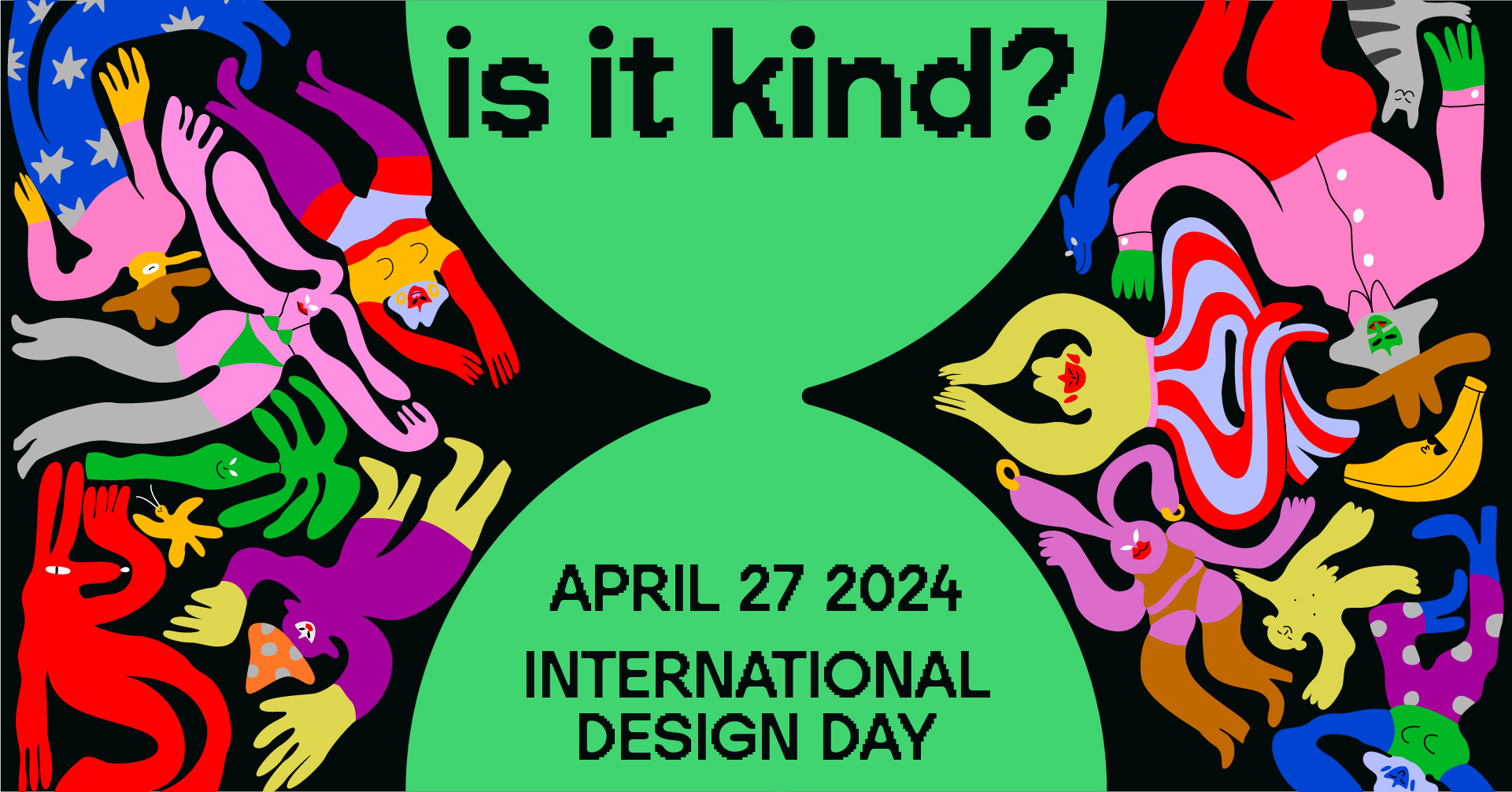ICoD stands against crowd-sourced competition for the Tokyo Olympics 2020 logo
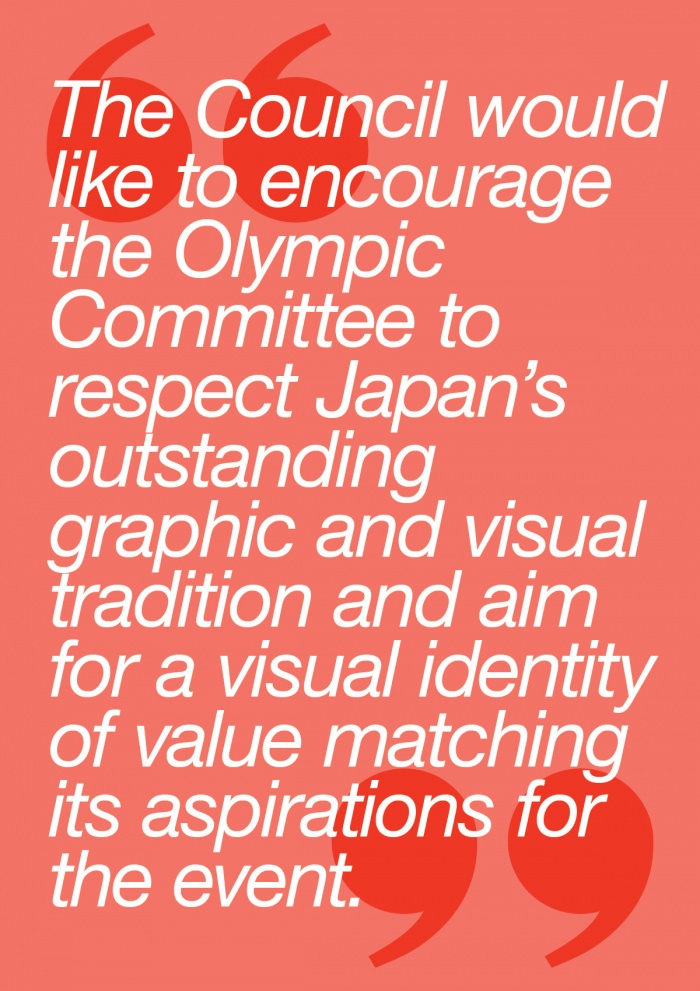
11.02.2016 ICoD news
In response to the controversy over the withdrawal of the Tokyo Olympics 2020 logo designed by Kenjiro Sano, and the subsequent open call for a replacement design, the International Council of Design strongly reiterates its stance against speculative work, emphasising the detrimental effects of crowd-sourced competitions to both designers and clients.
The Council has consistently stated its position against speculative (‘spec’) practices, most noteably on January 2015 to support the #mytimehasvalue social campaign carried out by the Association of Registered Graphic Designers (RGD) of Canada, whereby student representatives of RGD issued a call to the creative community to speak out against a similar situation surrounding the logo for Canada’s 150th Anniversary by sharing the message ‘My Time Has Value’.
ICoD is a Council of independent Member organisations—a global network spanning over 65 countries that share common positions, commitments and standards around design. ICoD Members create a unified voice for the global design community and drive high level dialogue on the leading role design plays in society, culture and the economy.
It is the role of the Council to set and maintain global standards of professional practice for design—standards that support the best interests of both designers and their clients, and ultimately, global design value.
Competitions that ask designers to work creatively without payment or protection not only are in breach of these standards of practice—disrespectful of the individual designer, the delicate ethics that exist around the designer-client relationship, and the design process itself— but degrade the quality of design produced. When clients, whether they are corporations, governments or institutions, try to bypass the professional design process to save time or money, it is them who ultimately pay the price for their choices. It is no coincidence that the world’s leading companies invest heavily in their branding, sometimes with budgets in the millions, developing valuable corporate design assets. These companies are offering the best return on investment to their shareholders and know that resources invested in professional branding are fundamental to their marketability. This principle applies as much for digital technology as it does for international sporting events.
We understand that design is an elusive thing to many. From the outside it might seem a little like alchemy. Why is something so simple as Nike’s ubiquitous ‘swoosh’ one of the world’s most marketable symbols if anyone could draw a similar shape in a few seconds? The assumption behind speculative design competitions is exactly this: that anybody could by chance create a powerful visual symbol. But we know this to be untrue. Professional designers undergo a shared process with their client to achieve exceptional outcomes. Designing is a dialogue; it takes time, expertise and experience to develop a meaningful symbol that resonates with a targeted market segment. Talented designers seek innovative solutions that are unique to each project; good design inspires, builds and fuels better design. When the professional design service isn’t valued—in the case of speculative practices: by offering non-designers a viable stake in ‘designing’ a logo—everyone becomes vulnerable to this short-circuiting of a hard-won and proven process. This not only debases the quality of the result, it fuels conditions that perpetuate an overall disregard for, and lowering of, the quality of design worldwide. This is a disturbing prospect to imagine on a large-scale.
In light of the call for design spec work for the new Tokyo Olympic 2020 emblems, the Council would like to encourage the Olympic Committee to respect Japan’s outstanding graphic and visual tradition and aim for a visual identity of value matching its aspirations for the event. This is an issue that is universal to design practice. Many ICoD members actively discourage speculative practices with their own national policies in their respective countries. See examples below of other organisations that have positioned themselves on this topic.
What is speculative practice?
Speculative practices (also called ‘spec work’) are defined as: design work (including documented consultation), created by professional designers and organisations, provided for free or for a nominal fee, often in competition with peers and often as a means to solicit new business. In harmony with ICoD’s Professional Code of Conduct for designers, ICoD recommends that all professional designers avoid engaging in such practices.
What is the difference between spec work and pro-bono work?
Pro bono work is defined as the work of a professional designer offering their services free of charge to a non-profit or charitable organization. It is a valid way for designers to give back to the community, support causes they believe in. Pro-bono work is quality work that respects the design process but is not remunerated.
ICoD’s position on speculative practice
ICoD strongly believes in the value of professional design and fair compensation for design work. ICoD discourages all practices that engage designers in any kind of speculative, unpaid work, including competitions. Such practices undermine the value of design and the professional standing of designers.
Why ICoD discourages speculative practice
Many of ICoD’s Member associations and others have articulated their disagreement with speculative practices and have launched programmes to raise awareness of:
• the detrimental impact on the quality of business outcomes from such practices.
• resulting restraints on developing the status and standing of design as a respected profession, and the detrimental impact on the economy.
ICoD maintains its support of best practices, values expressed in the Professional Code of Conduct and thus stands in solidarity with design students and professionals worldwide and in opposition to the global usage of speculative practices in soliciting design work.
___
ICoD STANDS AGAINST CROWD-SOURCED COMPETITION FOR THE TOKYO OLYMPICS 2020 LOGO (Japanese translation)
東京2020大会エンブレム一般公募に対するICoDの異議申し立て
佐野研二郎氏がデザインした2020年東京オリンピック・パラリンピック競技大会エンブレムの白紙撤回とその後の新デザインの一般公募に関する最近の論争に対し、国際デザイン協議会(ICoD)は、スペックワーク(投機的な仕事)反対の立場をあらためて強く表明し、一般公募はデザイナーとクライアントの両者に悪影響を及ぼすことを強調します。
ICoD は、一貫してスペキュレイティブ(スペック)ワークに反対の立場を示してきました。中でも重要なのは、2015年1月、カナダの公認グラフィックデザイナー協会(RGD)が行った「#mytimehasvalue」運動を支持したことです。この運動でRGDの学生会員たちは、「私の時間には価値がある」という共通のメッセージを掲げた写真をSNSに投稿し、カナダ建国150周年記念ロゴを取り巻く同様の状況に反対の声を上げるよう、クリエイティブ業界に求めたのです。
ICoDは、独立する加盟団体からなる協議会であり、デザインに関して同じ立場・責任・基準を共有する65カ国に及ぶ世界的なネットワークです。ICoD加盟団体は、世界のデザイン業界に対して統一見解をまとめ、デザインが社会・文化・経済で果たす重要な役割について高いレベルの対話を促進しています。
ICoDの役割は、デザインの専門業務の世界基準を設定し維持すること、つまり、デザイナーとクライアントの両者に最大利益をもたらす基準を、ひいては世界のデザインの価値を設定し維持することです。無報酬または無保護でデザイナーにクリエイティブな仕事を求めるコンペは、個人のデザイナー、デザイナーとクライアントの関係に存在する微妙な倫理観、デザインプロセスそのものを軽視し、このような業務の基準に反するだけでなく、考案されるデザインの質を落とすことにもなります。
クライアントが企業、行政機関、公共団体の何であれ、時間とお金を節約するために専門的なデザインプロセスを省こうとすれば、結局、クライアント自身につけが回ってくるでしょう。世界の一流企業がブランディングに時には莫大な資金を投じ、貴重なコーポレートデザイン資産を築くのは、決して偶然ではありません。こうした企業は、投資する株主への高配当を誇り、専門的なブランディングに投資する財源は市場価値を高めるのに必須だとわかっているのです。この原則は、国際的なスポーツイベントと同様にデジタル技術にも当てはまります。
多くの人にとって、デザインはわかりにくいものなのでしょう。一般人から見れば、デザインは錬金術のように思われるのかもしれません。至るところで目にするナイキのシンプルなロゴ「スウッシュ」は、誰でも簡単に真似できるにも関わらず、なぜ世界で最も市場価値の高いシンボルになっているのでしょうか? デザインの一般公募の裏にあるのはまさに、「誰でも強烈なビジュアルシンボルをふと思いつくかもしれない」という思い込みです。ところが、これは大きな間違いなのです。
プロのデザイナーは、クライアントと共有するプロセスを経て、きわめて優れた成果物を実現するのです。要は、デザインすることは対話であり、市場でターゲットとする層の心をとらえる有意義なシンボルを考案するには、時間、専門知識、経験が欠かせません。有能なデザイナーは毎回の案件に他に類のない画期的なデザインを求め、優れたデザインはよりよいデザインをひらめかせ、創造し、推進するのです。たとえばスペックワークの事例では、ロゴの「デザイン」料として素人にそれなりの賞金を授与しますが、専門的なデザイン業務が評価されなければ、苦労して築く確かなプロセスを誰もが省略しかねません。これではデザインの質を下げるだけでなく、世界全体のデザインの質を完全に無視し低下させる状況をさらに悪化させることにもなります。これは由々しき事態であり、広い視野に立って想像しなければなりません。
東京2020大会エンブレムの新デザインのスペックワークを考慮してICoDは、大会組織委員会が日本の傑出したグラフィックとヴィジュアルの伝統を尊重し、この大会の志にふさわしいヴィジュアルアイデンティティを選考するよう働きかけたいと思います。
これは、世界のデザイン業務に共通する問題です。ICoD加盟団体の多くは、各国の政策により積極的にスペックワーク対策に取り組んでいます。一例として、最近、加盟団体のアメリカグラフィックデザイン協会(AIGA)は公開書簡を発表しました。
——詳細についてはアメリカグラフィックデザイン協会(AIGA)常務理事リチャード・グレーフェ氏による「エンブレム一般公募に反対:AIGAから東京オリンピック組織委員会宛ての公開書簡」を参照して下さい。
スペックワークとは何か?
「スペックワーク」の定義は、「プロのデザイナーや組織が無償または少額の報酬で提供するデザイン業務(書面によるコンサルティングを含む)であり、同業者と競争する形で新規事業におけるデザイン募集方法として行われる場合が多い」。ICoDデザイナー職務行動規範に従って、ICoDはすべてのプロのデザイナーがこのような仕事に関わらないように勧告します。[1]
[1]2011-13年第25回総会資料付則「ICoDベストプラクティス」文書より
スペックワークとプロボノワーク(無料奉仕活動)の違いは何か?
プロボノワークの定義は、「プロのデザイナーが非営利団体や慈善団体に無償でサービスを提供する仕事」。デザイナーが地域社会に還元し、自らの信条に従うのに、効果的な方法です。プロボノワークは、無報酬でありながらデザインプロセスを尊重する質の高い仕事です。
——カナダの公認グラフィックデザイナー協会(RGD)が作成した「グラフィックデザイナーのためのプロボノワーク指針」を参照して下さい。
スペックワークに関するICoDの立場
ICoDは、専門的なデザインには価値があり、デザイン業務に対し正当な報酬が支払われるべきだと強く考えます。デザイナーをいかなる種類でも無償スペックワークに従事させるあらゆる業務に反対します。そのような業務は、デザインの価値とデザイナーの専門職としての地位の低下を招きかねません。
なぜICoDはスペックワークに反対するのか?
多くのICoD加盟団体などは、スペックワークに異議を申し立て、以下の事項に対する意識を高めるためのプログラムを立ち上げました。
・このような業務が成果物の質に与える悪影響
・その結果、尊敬される専門業務としてのデザインの地位と立場の向上が妨げられ、経済に悪影響があること。
ICoDは、ベスト(スペック以外)プラクティス(最善慣行)を支持し、「ICoDベストプラクティス」文書に記載された価値を守り続けることによって、世界中のデザインの学生や専門家と一致団結して、デザイン募集の際にスペックワークが世界的に行われていることに反対する立場を示します。
スペックワークに関し、以下のICoD資料や記事も参照して下さい。
詳しくは下記までご連絡下さい。
アリーシャ・ピアシー
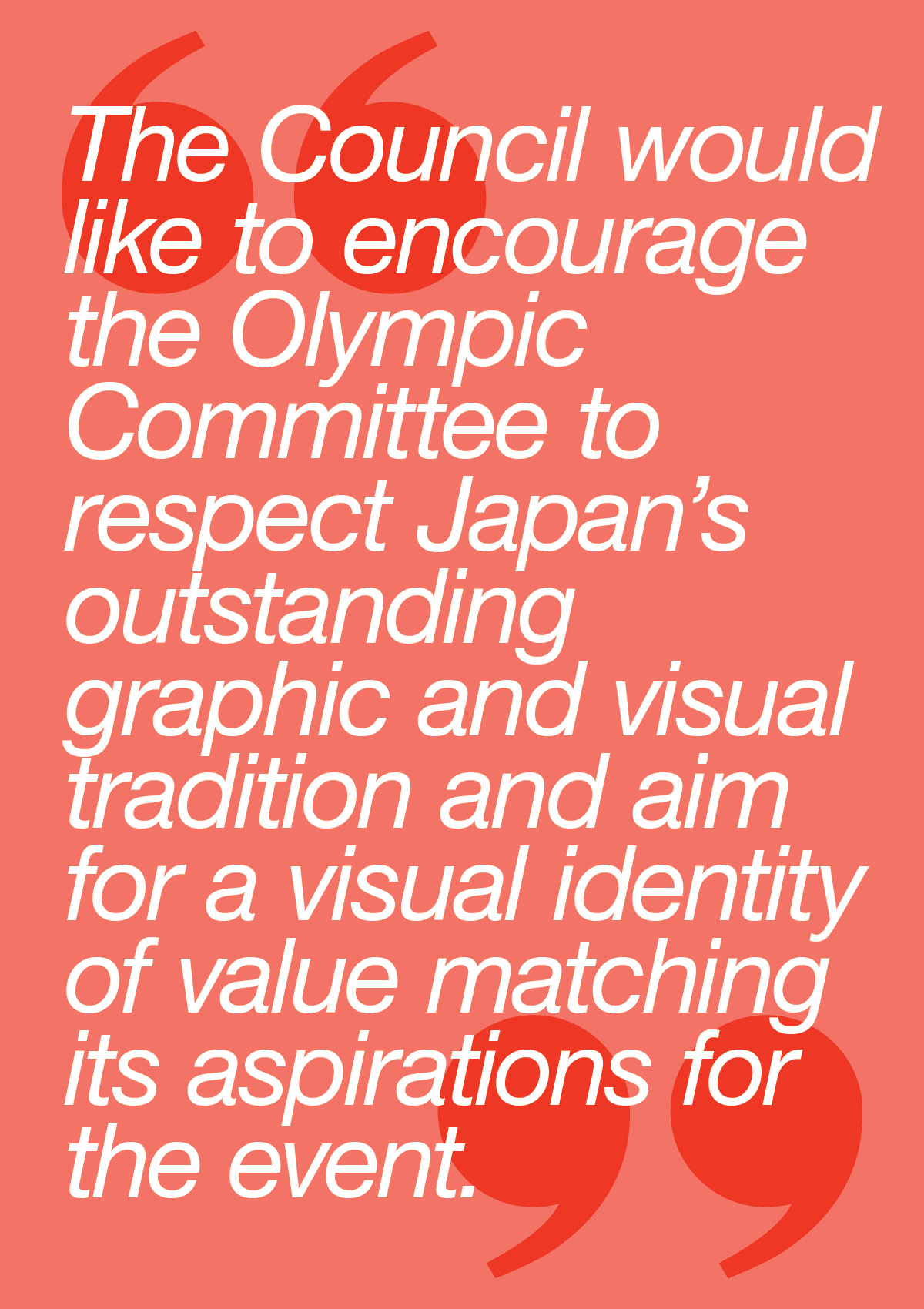
relatedarticles
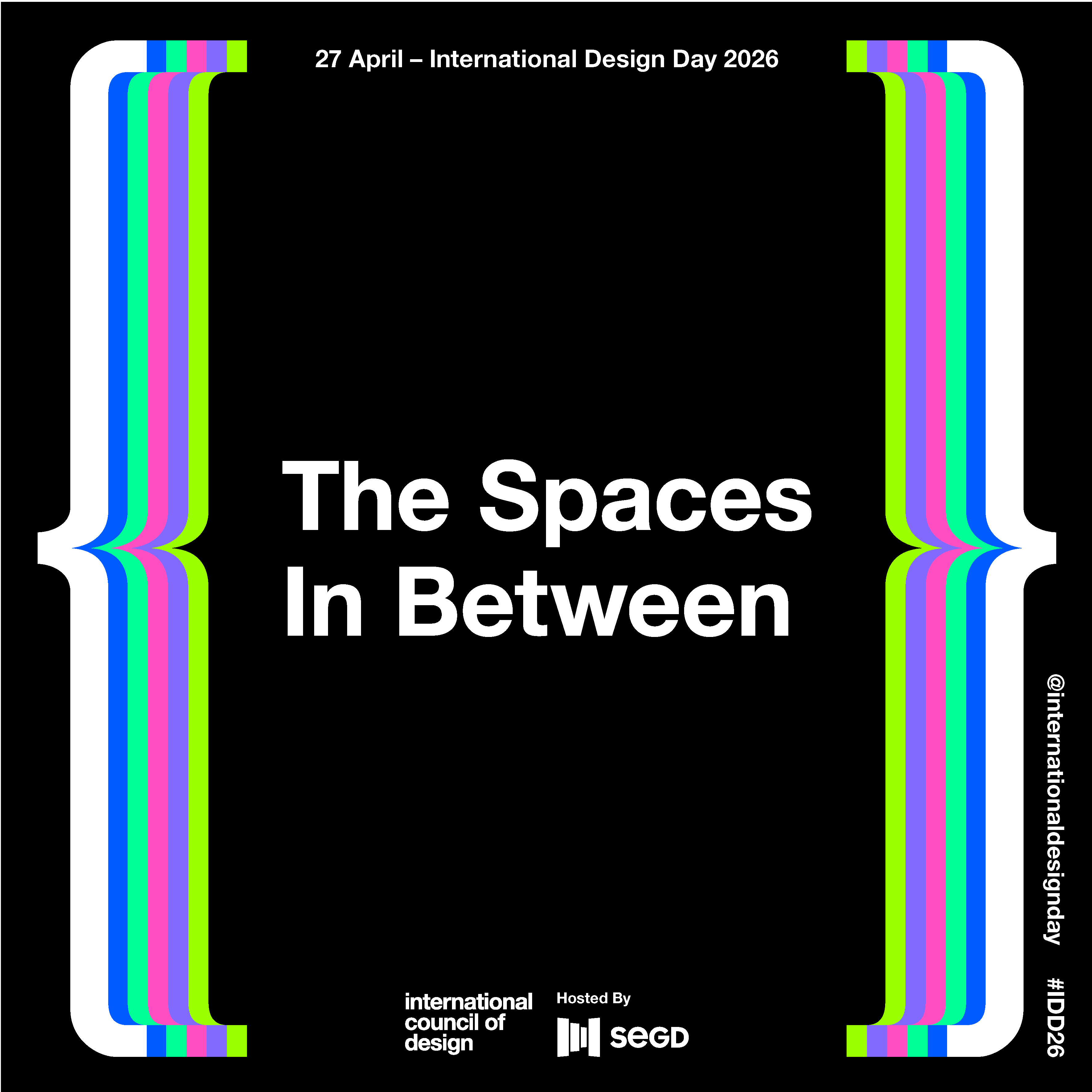
The Spaces In Between: ICoD Announces International Design Day 2026 Theme
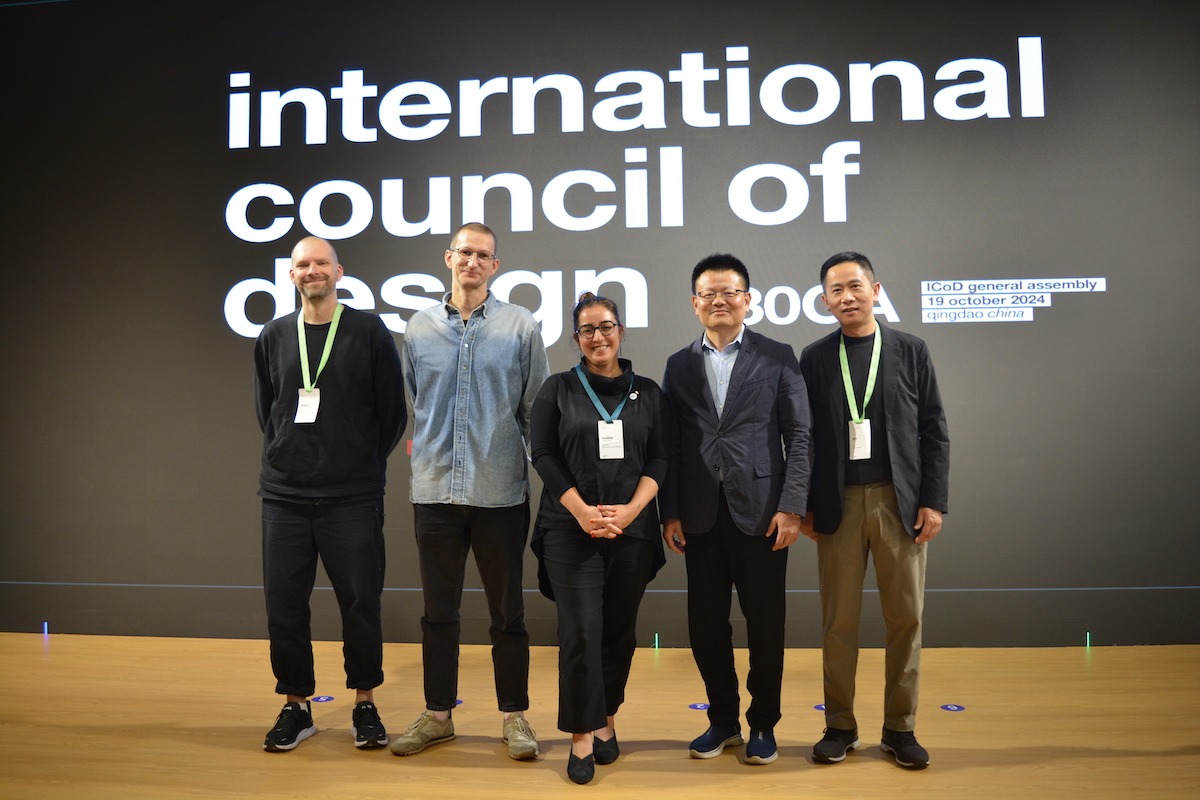
meet the 2024–2026 executive board
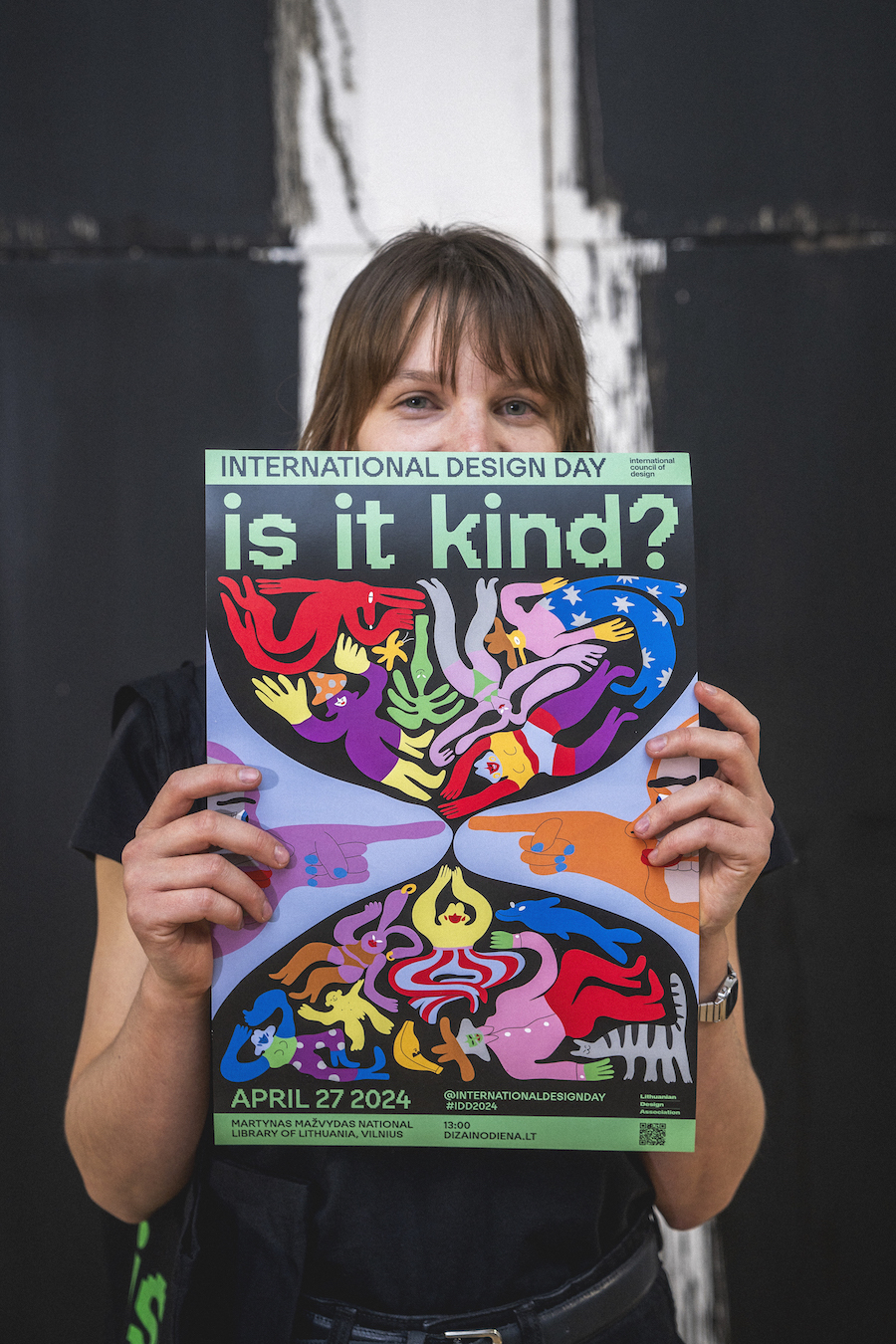
international design day 2024: is it kind? recap
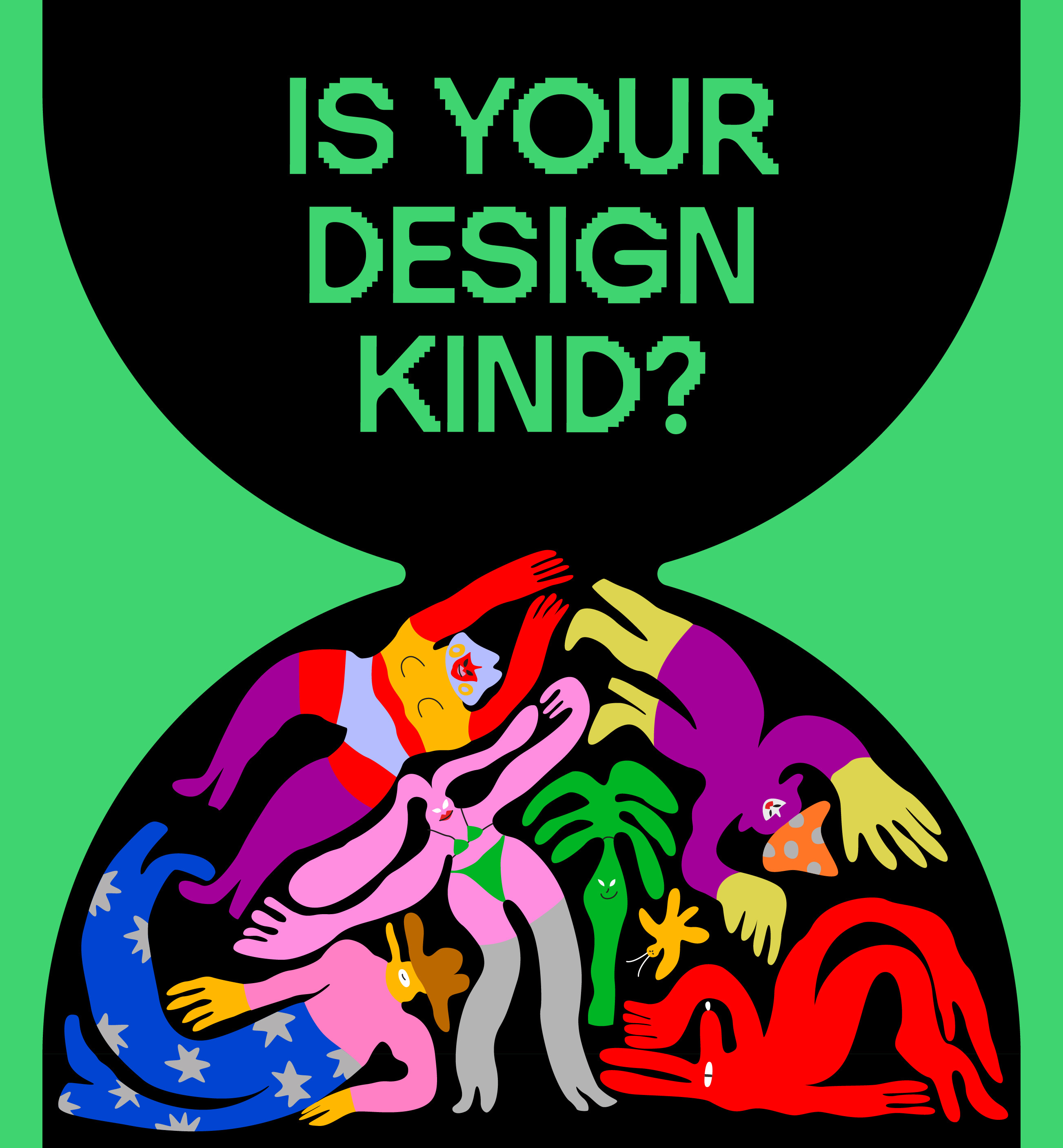
LDA forum + international design day 2024 conference
